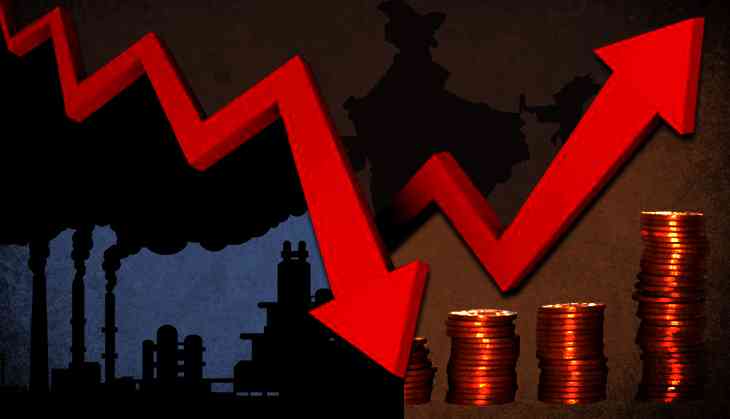Rising inflation can dampen Modi's claim of economic recovery

The Indian economy became world's six largest earlier this week, giving the ruling government a feather in its cap ahead of the 2019 Lok Sabha polls, but the news of rising inflation and falling factory output are a cause of concern in the immediate future.
India’s retail inflation grew by 5% in June, a five-month high, compared to 4.87% in May. This is largely due to rising fuel and housing prices.
Why dangerous?
In its June Monetary Policy review, the Reserve Bank of India had effected its first rate hike since the NDA government came to power at the Centre.
While the RBI had increased its repo rate by 25 basis points to 6.25%, it was done as a cautionary step to reign in any inflationary expectations in future.
Most analysts had expected the RBI to go for only two rate hikes this year, especially in the wake of international development like rising in the price of crude oil and flight of Foreign Institutional Investors to the US markets due to rising interest rates in the western nation. However, with June inflation touching the 5% mark and fuel prices expected to go up further, it is unlikely that the RBI would be able to contain inflation with just one more rate hike in this calender year.
It's not just fuel
While “fuel and light” inflation rose by 7.14%, inflation in housing grew by 8.45%. Inflation in the “clothing and footwear” category also grew by 5.67%. “Household goods and services” and “health, transport and communication” also recorded price rise to the tune of 5.18% and 6.07% respectively. The rise in all types of goods and services other than fuel and light debunks the government's theory that Goods and Services Tax will make consumer products cheaper in the country.
While traders' have been unhappy post the introduction of GST due to its cumbersome compliance mechanism, the common man had a good time purchasing things on heavy discount in pre-GST clearance sales.
But if fuel prices remain high in the international market over the next one year, all goods' manufacturers as well as service-providers will be forced to factor in higher input costs in their end products, unsettling household budgets.
After last month's rate hike by the RBI, many banks have announced marginal hike in their interest rates for car and home loans. Another rate hike by the RBI before December this year, will exacerbate problems for the BJP's middle class vote bank.
So far, the price of food articles has been contained by the Modi government through a liberal import import policy and giving lower Minimum Support Price (MSP) for crops in the country. However, in the last year before elections, government will have to increase its procurement under the recently hiked MSP for Kharif crops that will hit the market later this year. Analysts expect that the move, if fulfilled, will increase the CPI inflation further. So far, muted price rise for food articles has had a huge impact in keeping retail inflation low.
Vicious cycle
Since retail inflation in the country is not a result of increased demand but increased input costs due to higher fuel prices and a depreciating rupee, it can have a negative impact on demand in future. This could result in a further decline in IIP and other economic indicators. There is nothing much that the government can do about rise in fuel prices as it imports 80% of India's fuel requirement from outside the country. Similarly, keeping food inflation low for a long time was proving to be a bad for the rural economy in the last four years that could cost the government electorally.
The finance minister of the country has a tough task ahead, balancing between inflation and BJP's core electoral constituencies.
First published: 13 July 2018, 19:49 IST

